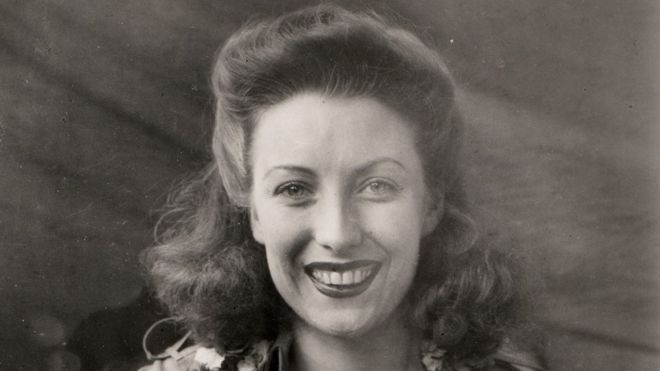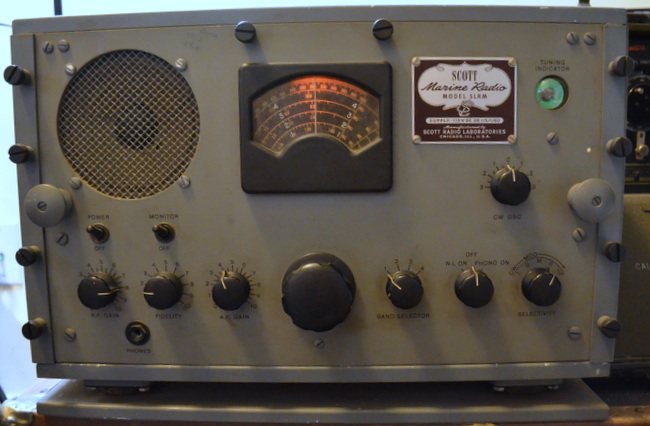Radio Waves: Stories Making Waves in the World of Radio
Because I keep my ear to the waves, as well as receive many tips from others who do the same, I find myself privy to radio-related stories that might interest SWLing Post readers. To that end: Welcome to the SWLing Post’s Radio Waves, a collection of links to interesting stories making waves in the world of radio. Enjoy!
Many thanks to SWLing Post contributors Tracy Wood, Dennis Dura, David Goren, and Kim Elliott for the following tips:
Obituary: Dame Vera Lynn, a symbol of resilience and hope (BBC News)
Dame Vera Lynn, who has died at the age of 103, was Britain’s wartime Forces’ Sweetheart, and remained one of the country’s most potent symbols of resilience and hope.
With songs such as We’ll Meet Again and The White Cliffs of Dover, she inspired both troops abroad and civilians at home during World War Two.
As Britain’s cities came under attack, her wistful songs, with their messages of yearning and optimism, were heard in millions of British homes.
And 75 years later, the country turned to her once again as it faced another stern test.[…]
London street noises 1928 (Sound and History)
THERE ARE NO BBC radio recordings surviving from before 1931, so the job of representing the 1920s falls to this curiosity from the Columbia Graphophone Company. It’s a 12” 78rpm disc made in 1928 in association with the Daily Mail newspaper.
It seems likely that the disc was somehow tied in with a Daily Mail campaign over urban traffic noise. The commentator on both sides of the disc is a man named Commander Daniel and he doesn’t approve of everything he hears in the city streets.
The recordings were made from single, static locations in Leicester Square and Beauchamp Place on Tuesday 11th and Thursday 20th September respectively. Columbia probably used a recording van equipped with a disc-cutter.[…]
Repoliticizing Voice of America (The Hill)
When Michael Pack takes over as the first politically-appointed CEO of the U.S. Agency for Global Media, his first task will be to comprehend the bewildering array of international broadcasting entities under the USAGM. This includes two government agencies: Voice of America and Office of Cuba Broadcasting (Radio and TV Martí), and four government funded corporations: Radio Free Europe/Radio Liberty, Radio Free Asia, Middle East Broadcasting Networks (the Arabic-language Alhurra and Radio Sawa) and the anti-censorship Open Technology Fund. Within this structure are broadcasting outlets that straddle two entities, such as the Russian-language Current TV. All told, the entities distribute content in 61 languages.
When past that hurdle, Pack must then decide if he wants to maintain the journalistic independence of USAGM’s entities, or if he wants to move them towards advocacy of the administration’s policies.[…]
Companies Pitch Shortwave Radio to Shave Milliseconds Off Trades (Bloomberg)
High-frequency traders will famously do almost anything to get the latest market data and send their buy and sell orders a few milliseconds ahead of the competition. They blasted through mountains to build the most direct fiber-optic routes possible between exchanges in a competition that transformed global markets and was made famous by Michael Lewis’s book Flash Boys. Soon, pinging light through glass fiber at more than 124,000 miles per second wasn’t fast enough—the glass slows things down—so traders moved on to microwave transmitters that send signals through the air.
But that has problems, too. Microwaves travel only roughly as far as the eye can see before they peter out and need a signal boost. Now two rival market telecommunications companies have signed a pact that they say will give traders more access to experimental wireless signals which can travel across oceans.
To do that, signals need a longer wavelength—known as a shortwave rather than microwave—that bounces between the water and atmosphere. It’s an imperfect solution. The waves can handle only a fraction of the data that fiber can, carrying about a kilobit per second vs. gigabits. And some signals can be lost.
Raft Technologies Inc., a startup based in Tel Aviv, says the trade-offs are worth it. Raft says it can send data over shortwave from Chicago to Frankfurt in 31.4 milliseconds, which it says is about 4.5 milliseconds faster than the best available fiber route. That’s an eternity in an industry that tends to measure improvements by the thousandth of a millisecond. The company says the signal is about 85% reliable, compared with 100% for fiber. Clients can use a fiber line in parallel as a fail-safe measure.[…]
Do you enjoy the SWLing Post?
Please consider supporting us via Patreon or our Coffee Fund!
Your support makes articles like this one possible. Thank you!





